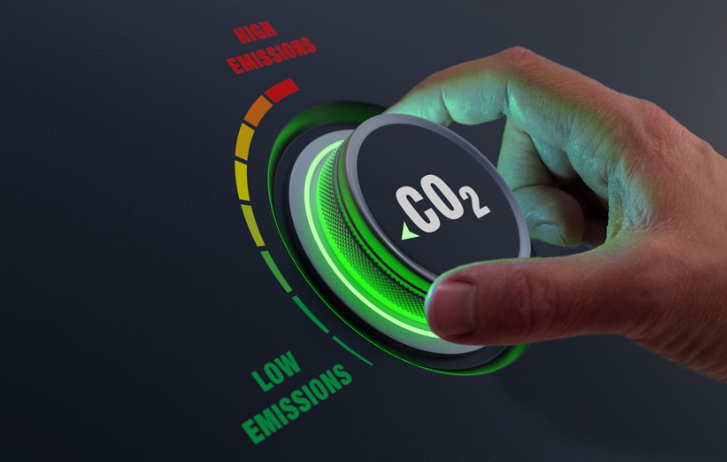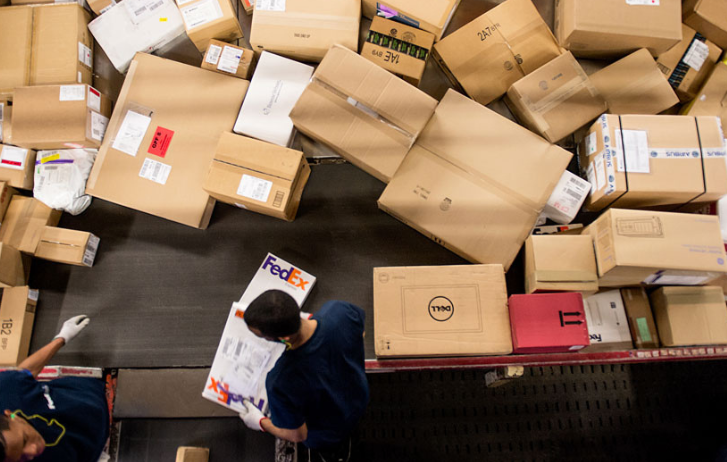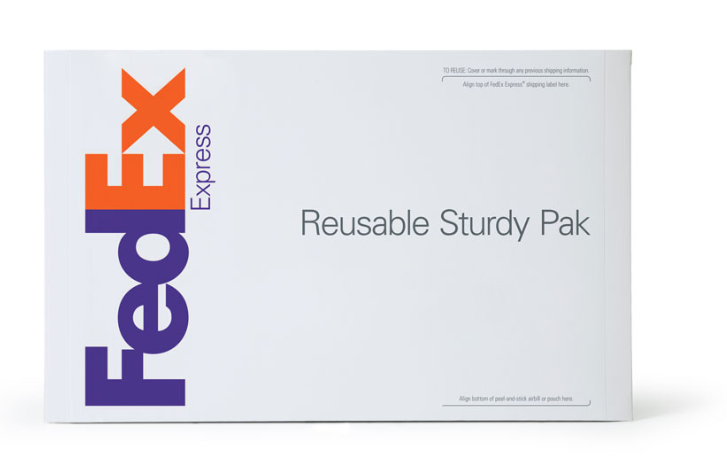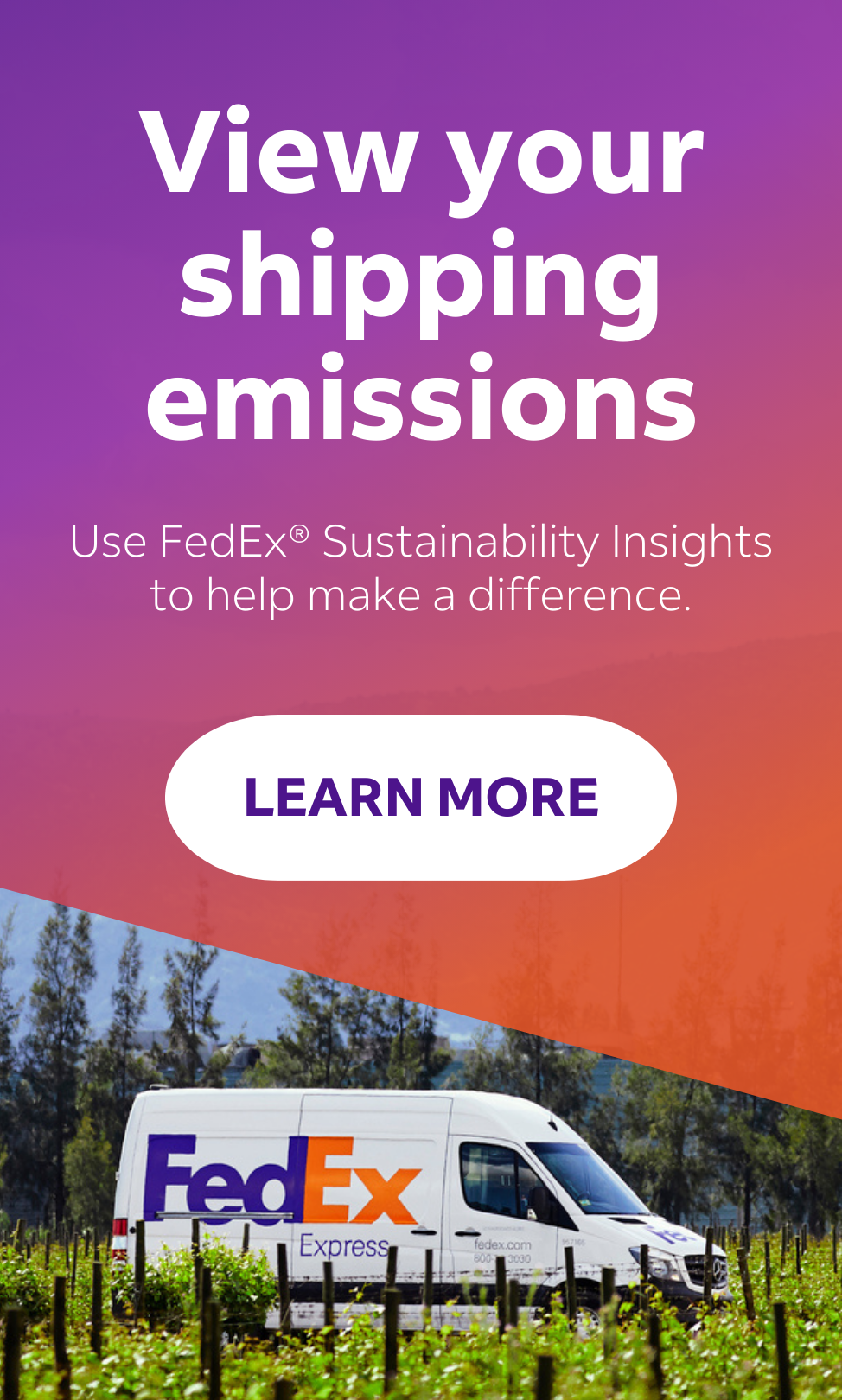
FedEx Packaging Is Now More Sustainable – Here’s Why
By FedEx | First published: January 25, 2022 Updated: March 8, 2024
To protect the planet for generations to come, businesses of all sizes are looking for ways to drastically reduce environmental impact and operate more sustainably. If you’re transporting packages regularly, find out how greener packaging can help you ship more sustainably.
With the explosion of e-commerce in the last decade, a major shift has taken place in packaging trends. From recyclable materials to multi-use, today’s consumers want eco-friendly, biodegradable packaging from sustainable, ethical sources. Both e-tailers and logistics players are finding new ways to address the demand.
Plastic and packaging pollution is a mega-issue globally
Packaging can say a great deal about your brand’s attitude to your product and the environment. It’s a way to show we care. As much as 13 million tons of plastic waste enter the world’s oceans each year, with Asia responsible for almost 65% of global mismanaged plastic waste.
And of the top 10 worst plastic polluters in the world, four are in Asia, with China’s pollution output massively outweighing other regional polluters Japan, Indonesia and Thailand.
Richer, more developed countries in the Western world often send their plastic waste to less-developed countries such as the Philippines. But most plastic waste is handled domestically, entering our world’s oceans through rivers or the atmosphere through incineration. Impact on local communities can be toxic.
Moving away from single-use packaging
Today, single-use plastic – and all packaging that takes energy and resources to produce and then dispose of at scale – is a global problem. One that governments, businesses, and consumers are increasingly trying to tackle.
As much as 13 million tons of plastic waste enter the world’s oceans each year, with Asia responsible for almost 65% of global mismanaged plastic waste.
Retailers, importers and exporters in particular are at the front line, needing to transform processes and find more sustainable ways of operating to reduce carbon footprint and emissions. And packaging has always been central to what we do at FedEx.
As a company that delivers around 15 million packages every business day, sustainable packaging has been one of our key objectives for some time. From paperless billing to reusable packaging, check out how we’re working to create a more sustainable supply chain below:
Carbon offsetting
All FedEx branded envelopes have been carbon neutral for over a decade. We also invest in offsets for every envelope shipment at no cost to customers, so you can send documents free of worry about your carbon footprint. And the envelope itself is made of 100% recycled paperboard.
Recycle and reduce our paper footprint
FedEx-branded packaging is 100% recyclable and composed of 36% recycled content. And the majority of our paper is forest-friendly, certified by sustainable forest programs such as the Forest Stewardship Council (FSC).
We’re even investing in more and more ‘treefree’ paper alternatives and incorporating alternative fibres into our product mix to save trees.
You can now track and measure your emissions
One of our latest innovations, FedEx Sustainability Insights, is a tool for customers to track emissions at package and account level. Empowering businesses to deliver more sustainably, this revolutionary cloud-based tool uses real-time FedEx network data to help our customers:
- Evaluate and manage your carbon impact
- Review your FedEx shipping history to help you better understand your shipping patterns and environmental impact
- Create customized reports to provide transparency to customers and stakeholders
Pass on packaging hacks to our customers
We want our customers to ship more efficiently and use the least packaging possible. That’s why we price dimensionally based on volume, allowing us to make the best use of space in our aircraft, vehicles, and distribution centers.
For us, it not only improves loading efficiency and reduces our emissions, but also encourages customers to make conscious adjustments that maximize product density and reduce packaging materials.
FedEx Packaging Services works with customers to optimize package size and design, which reduces their costs and environmental impacts.
We even have special engineers on the case
Yes, packaging engineers exist at FedEx! The team assesses existing packaging and recommends more efficient designs. They also work closely with customers to meet their sustainability objectives, whether that means using less polystyrene foam, less film to wrap an item or more recyclable materials.
We have a dedicated Packaging Lab
Our state-of-the-art facility offers package, freight and materials testing. Optimizing your packaging helps you increase sustainability and reduce your footprint – plus helps you reduce damage and waste.
Some of our solutions can be used again and again – and again!
Cold chain solutions such as Medpak VI°C are designed to be used many times over – with the customer essentially just ‘borrowing’ the transportation facility each time they send temperature-sensitive shipments. And for our everyday shipments, we’ve developed an entire reusable packaging range to help our customers ship greener.
Say goodbye to excess packaging by going online
The introduction of FedEx Electronic Trade Documents (ETD) allows customers to simply upload their international shipment paperwork electronically. This reduces paper use, saving time and money and helps reduce environmental footprint.
We’re working hard to Reduce, Replace and Revolutionize – our sustainability motto. And responsible packaging supports our commitment to at least 5 of the UN Sustainable Development Goals, from Climate Action and Sustainable Cities And Communities to Responsible Consumption And Production.
But with our goal to help you ship as responsibly and sustainably as possible, we’re constantly exploring new innovations.
Get the full download on Reusable Paks and packaging options for your business here.
SHARE THIS STORY
- What’s So Dangerous About Coconuts? Your Guide To Dangerous Goods Logistics
- The Rise Of Intra-Asia Trade: Opportunities In The China-Southeast Asia Corridor
- Where Do Old Planes Go When They Retire?
- How To Ship A Giant Panda
- Generative AI: A New Frontier
- How To Make Freight Shipments Work For Your Small Business
Sign up now and save on your shipping rates!
Sign up now and earn discounts by shipping instantly with FedEx Ship ManagerTM at fedex.com.
Recommended For You

Here Are The Top 5 Most Difficult Items To Pack
Fragile and sensitive packages are shipped worldwide every day. As packing unconventional items can be tricky, here are some tips to keep them safe.
Read More
How To Empower Australia’s Remotest Small Businesses
Online marketplace Buy From The Bush is empowering small business owners across rural Australia to connect with global customers.
Read More
How To Turn Sustainable Ideas Into Impactful Products
Antoinette started SuperBee as a sustainable solution to combat plastic pollution. Rooted in local communities, her brand is creating worldwide buzz.
Read More





